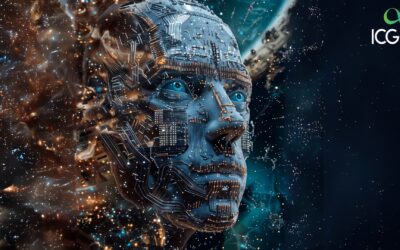Today’s organizations constantly seek ways to boost productivity, efficiency, and employee satisfaction. However, the one-size-fits-all approach to work experiences often falls short of meeting the diverse needs and aspirations of the modern workforce. Enter personalized workflows, a cutting-edge solution that harnesses the power of artificial intelligence (AI) to tailor and optimize work processes for each employee.
Understanding Personalized Workflows
Personalized workflows are the outcome of applying advanced AI techniques, including machine learning, natural language processing, computer vision, and recommender systems, to various facets of work. These facets encompass:
1. Tasks
AI plays a pivotal role in assigning, prioritizing, and scheduling tasks based on an employee’s unique set of skills, interests, availability, and deadlines. It also provides real-time feedback, guidance, and assistance to enhance task completion efficiency.
2. Tools
Personalized workflows involve the selection, configuration, and integration of tools tailored to each employee’s preferences, needs, and objectives. AI automates and simplifies tool functionality while offering recommendations for new or alternative tools.
3. Teams
AI helps form, manage, and coordinate teams that complement each employee’s personality, communication style, and collaboration preferences. It facilitates communication, monitors team dynamics, and provides insights for improved performance.

The Benefits of Personalized Workflows
Personalized workflows offer a multitude of advantages for both employees and organizations:
1. Increased Productivity and Efficiency
By aligning tasks, tools, and teams with each employee’s strengths, preferences, and goals, personalized workflows enable employees to work faster, better, and more efficiently. This reduces errors, rework, and wasted effort.
2. Enhanced Creativity and Innovation
Providing employees with tasks, tools, and teams that align with their interests and strengths fosters creativity and innovation. Employees can explore new possibilities, generate novel ideas and solutions, and contribute to a culture of experimentation and improvement.
3. Improved Engagement and Satisfaction
Personalized workflows make work more meaningful, enjoyable, and fulfilling for employees. This leads to higher motivation, a greater sense of value, and increased empowerment at work. It also enhances autonomy, ownership, and job satisfaction.
4. Higher Retention and Loyalty
Aligning tasks, tools, and teams with individual aspirations, needs, and expectations enables employees to grow and advance in their careers. This, in turn, increases commitment, trust, and loyalty to the organization.
Implementing Personalized Workflows
Implementing personalized workflows is an ongoing process that relies on continuous data collection, analysis, and feedback. Organizations should follow these key steps:
1. Collect Data
Gather data from multiple sources, including employee profiles, surveys, assessments, performance reviews, feedback, and behavior. Additionally, consider organizational goals, strategies, policies, and culture. Ensure that data collection respects employee privacy and consent.
2. Analyze Data
Apply AI techniques such as machine learning, natural language processing, computer vision, and recommender systems to analyze data. Extract insights, patterns, and predictions about individual characteristics, preferences, and needs, as well as the optimal tasks, tools, and teams for each employee.
3. Provide Feedback
Offer personalized recommendations, suggestions, and guidance to employees and the organization. Deliver reports, dashboards, and metrics on how to improve and optimize work processes and environments. Ensure that feedback is timely, relevant, actionable, and allows for user input and feedback.
In conclusion, personalized workflows represent the future of work, empowering employees and organizations to reach higher levels of productivity, creativity, engagement, and satisfaction. Leveraging AI, personalized workflows create tailored work experiences for individual employees while aligning them with organizational goals and culture. They are not only a competitive advantage, but also a strategic necessity for organizations aiming to thrive in the digital age.
The ICG Approach
Opportunity
Innovation Consulting Group offers AI-driven personalized solutions to enhance workplace productivity, creativity, and employee satisfaction.
Solution
Personalized solutions using AI to tailor tasks, tools, and teams to individuals’ skills and preferences.
Value Proposition
1. Enhanced Productivity and Efficiency
2. Stimulated Creativity and Innovation
3. Elevated Employee Satisfaction
4. Competitive Edge in Talent Acquisition
Strategic Approach
1. Data-Driven Insights
2. AI Implementation and Integration
3. Continuous Improvement
Benefits for Clients
Immediate improvements in productivity and satisfaction; positioning for the future of work.
Conclusion
Innovation Consulting Group is leading a shift towards more efficient, personalized work environments using AI, offering a significant competitive advantage and fostering a more engaged, innovative, and satisfied workforce.
Ready to talk?
Request your free Consultation to learn more about ICG’s capabilities and enablement to embark on a transformative expedition toward the summit of success.








